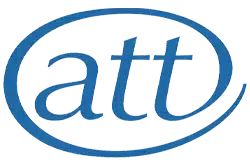In a generally positive Budget, a number of changes were announced as follows:
Annual Investment Allowance (AIA)
The 100% AIA was due to fall to £25,000 on 1 January 2015.
It has now been increased from £250,000 to £500,000, covering the period from April 2014 to31 December 2015. There are transitional provisions, the impact of which will depend on your chargeable period.
Pooling Requirement for Fixtures
The previously announced Mandatory ‘Pooling’ of capital allowances on fixtures comes into
force in April 2014. This is effectively the introduction of a “use it or lose it” regime.
‘Pooling’ means that where a Vendor could have made a capital allowances claim during its ownership, then the Purchaser will only be able to claim capital allowances if the vendor has in fact made a capital allowances claim in a tax return.
Failure to satisfy this rule will mean the purchaser and all subsequent owners will potentially be entitled to no capital allowances.
Therefore this change will affect most commercial property transactions.
Enhanced Capital Allowances (ECA)
The list of qualifying energy efficient technologies obtaining 100% ECA will be widened to include Active chilled beams and desiccant air dryers with energy-saving controls.
Other ECA qualifying criteria will be also be revised.
These changes will take effect before the summer 2014 Parliamentary Recess.
Enterprise Zone Allowances (EZA)
The EZA regime is to be extended by a further three years until 31 March 2020. The EZA is a 100% allowance available to companies in designated assisted areas.
Not all Enterprise Zones attract the 100% allowance and it is also not available to a property business.
Business Premises Renovation Allowances (BPRA)
BPRA is a 100% relief for capital expenditure incurred on the renovation or conversion of business properties that have been unused for at least a year in certain disadvantaged area.
From April 2014, the scope for claiming BPRA will be clarified. BPRA will only be available for (a) building works, (b) architectural or design services, (c) surveying or engineering services, (d) planning applications, or (e) statutory fees or statutory permissions. Additional associated but unspecified activities, such as project management services, will also qualify for BPRA, but limited to five per cent of the actual costs.
Other BPRA changes include:
- Preventing BPRA claims being made if another form of State Aid has or will be received.
- The rule relating to a building being unused for a year will be clarified.
- Where expenditure is paid in advance and BPRA claimed immediately, the works must be completed within 36 months or BPRA will be withdrawn.
- The period in which balancing adjustments must be made if certain events (e.g. a sale) occurwill be reduced from seven to five years.
Mineral Extraction Allowances (MEA)
Costs incurred in obtaining planning permission for the purposes of a mineral extraction trade will obtain accelerated MEA relief. This will be effective on or after the date that Finance Bill 2014 receives Royal Assent.
All references to April 2014 mean 1 April for corporation tax and 6 April for income tax.
Contact Us
If you have any questions about the Budget changes or any other aspect of capital allowances, please contact one of the Yewell Consulting partners.






